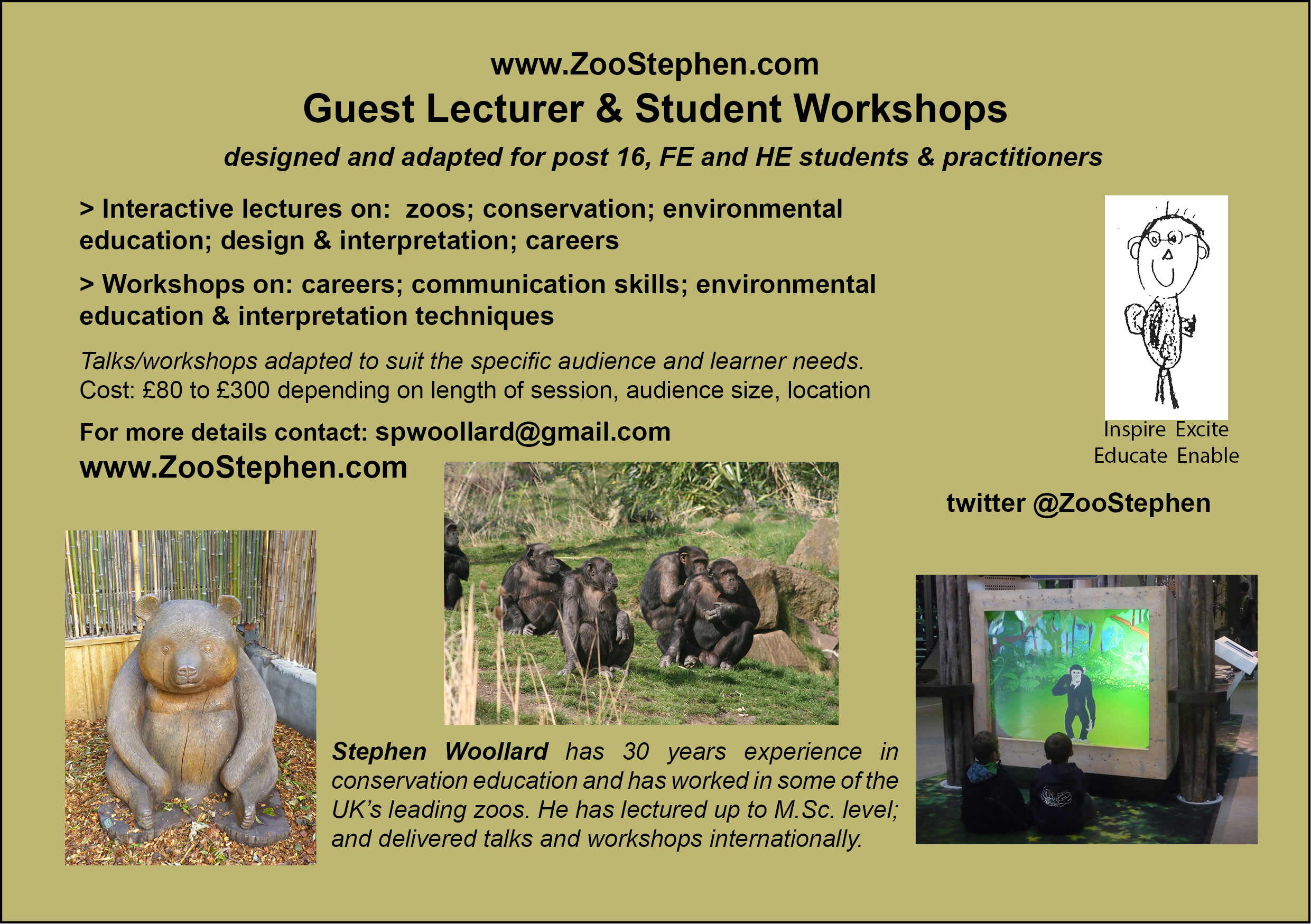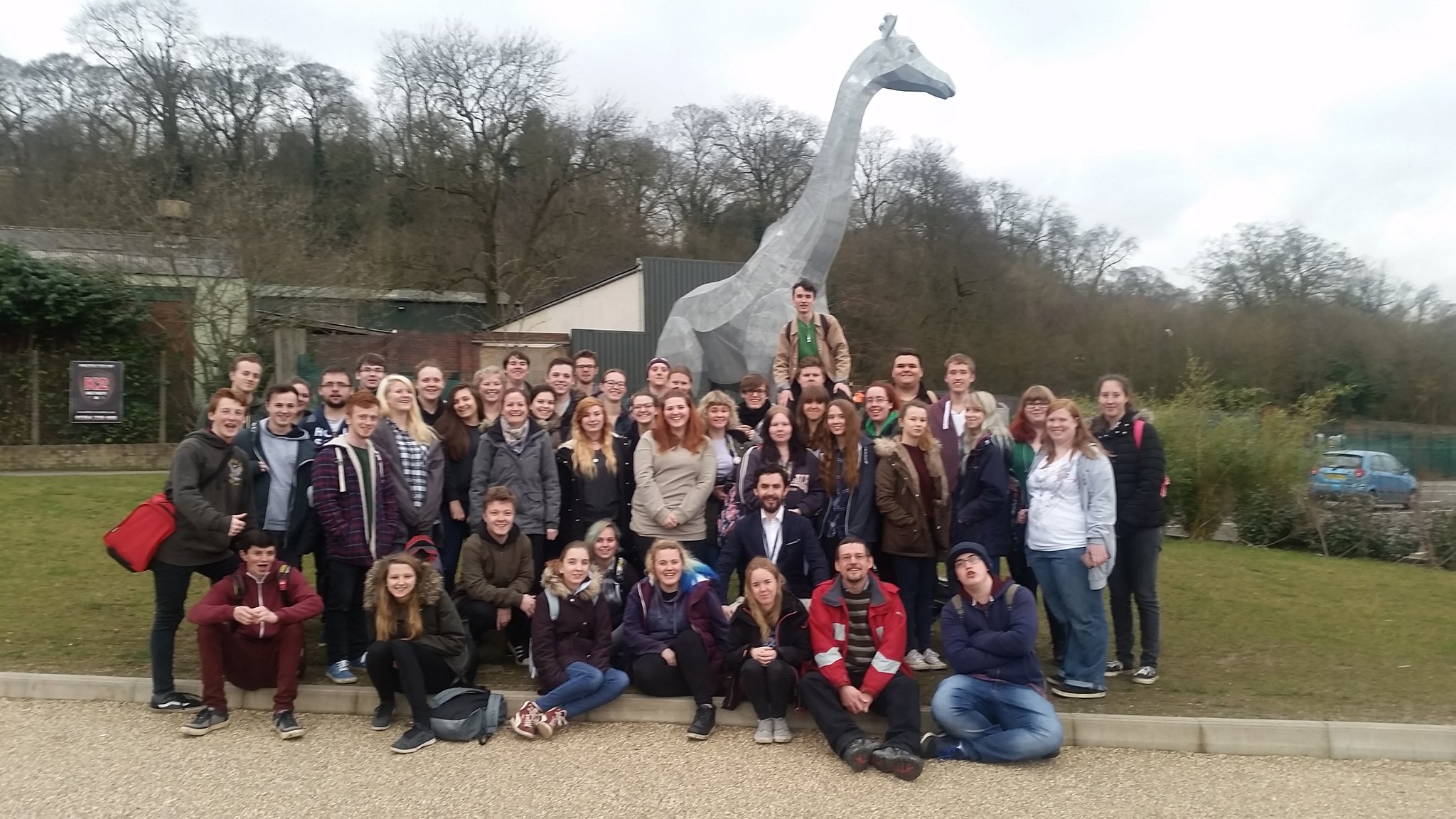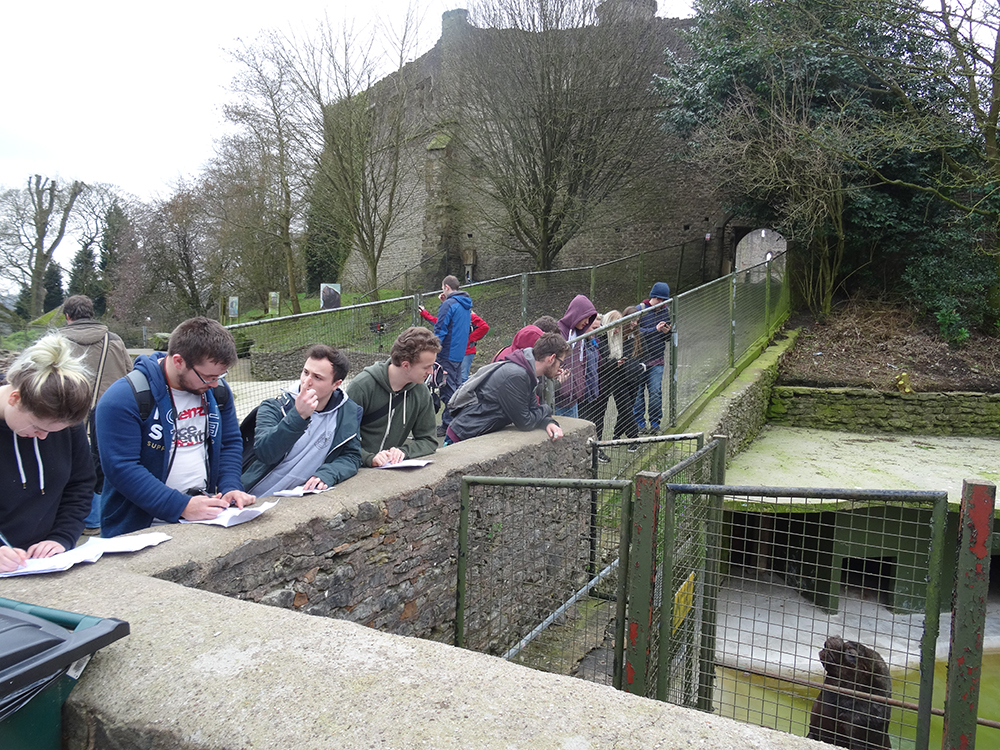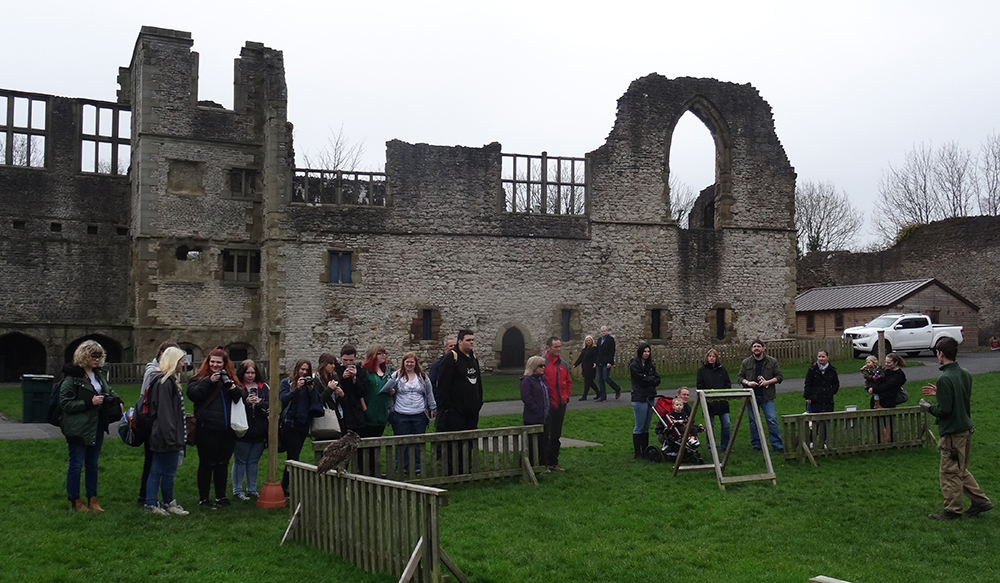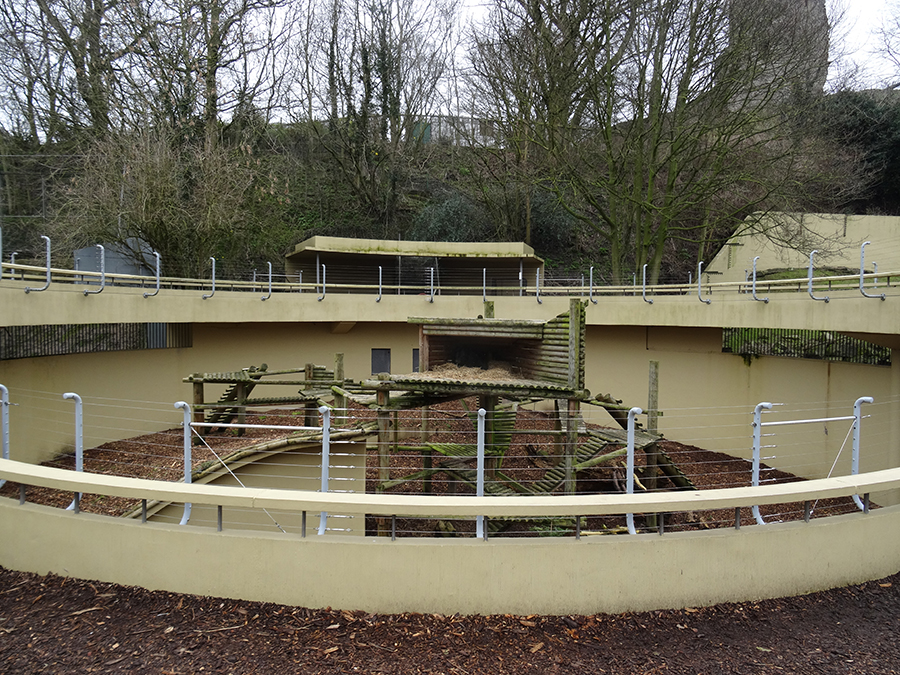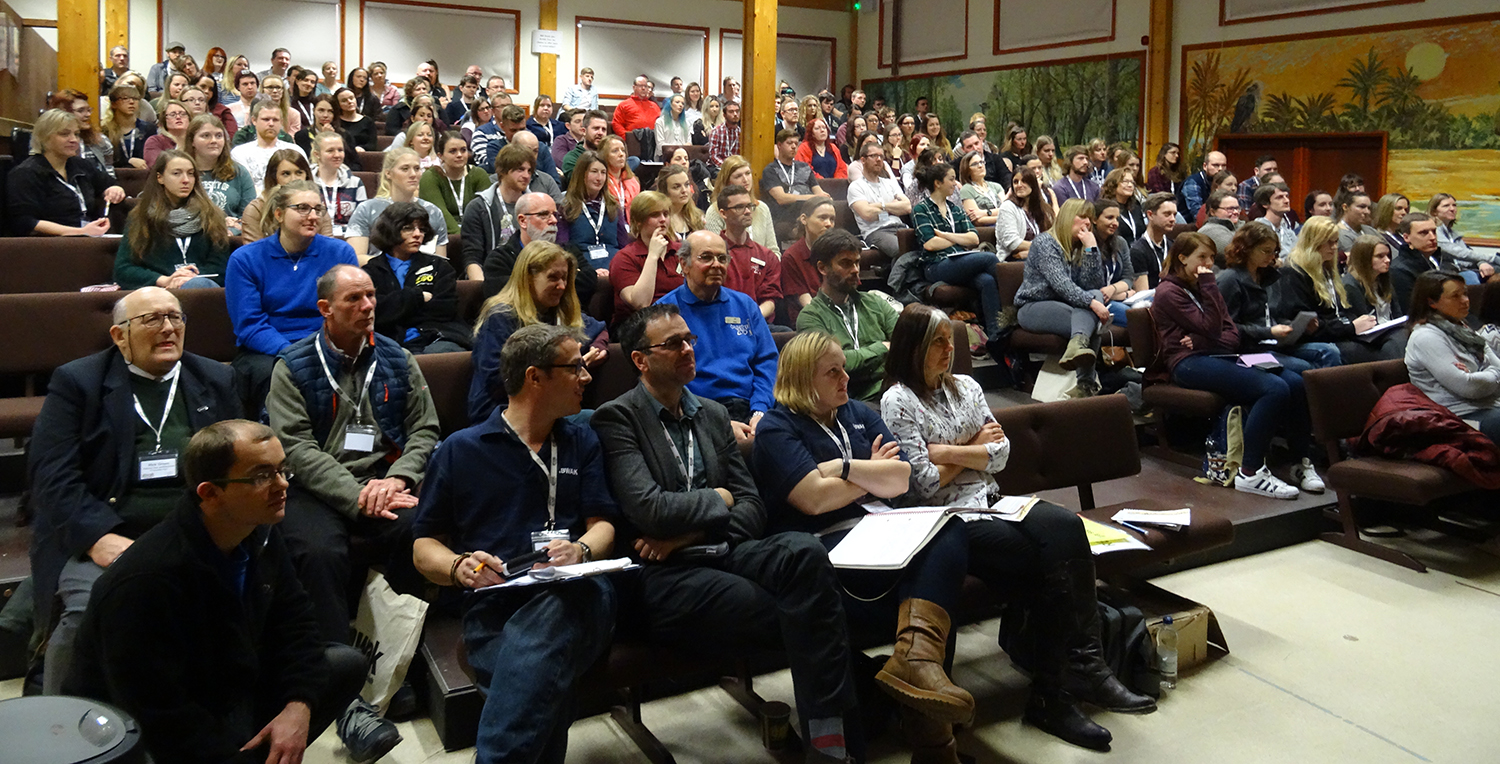In my career I have interviewed a few hundred candidates, and gone through several thousand CVs and application forms. Fortunately, I have been on the other side of an interview just a few times. So it was good to use this wealth of experience and help create the first ABWAK Associate Members Careers Workshop held at Sparsholt College in mid March 2017.
Alongside presentations and activities from ZooStephen on my career, understanding job adverts, CVs, application forms and interviews, the day included advice on volunteering and networking from ABWAK Council member Daniel O’Loughlin (Sparsholt) and career case studies and question time with Kathy Doherty, ZSL Whipsnade Zoo and Meg Fieldhouse, Marwell Zoo.
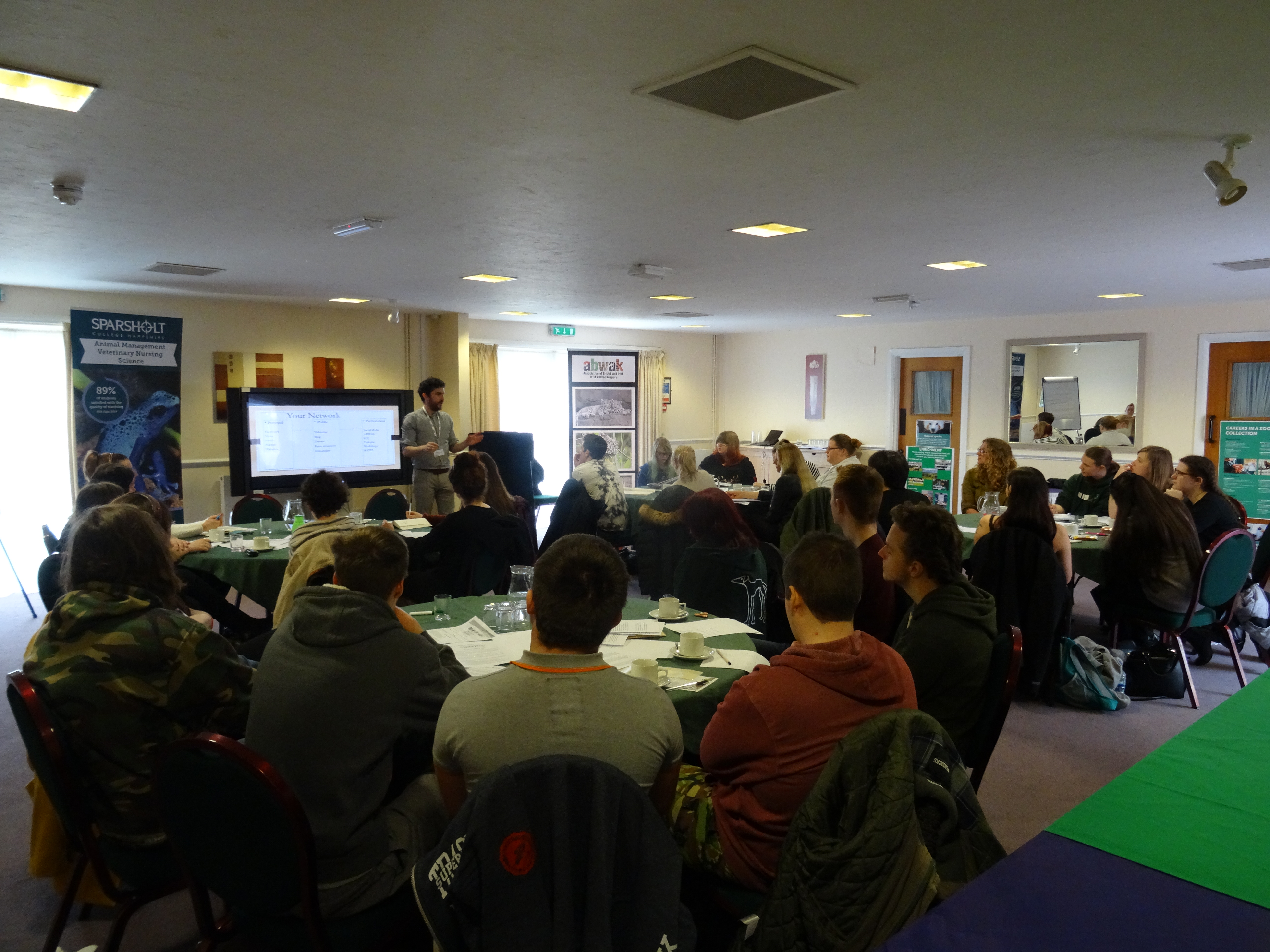
The delegates, mostly at the start of their ‘zoological’ careers, engaged in discussion and activities designed to help them improve their own CVs, understand the recruitment process better, and prepare for their future careers.
The day was also designed to provide an honest appraisal of the job situation and employment in the ‘zoo industry’, and so delegates were made aware that jobs are very competitive, salaries still low, especially at junior level, and that many are using ‘volunteering and internships’ as additional routes to employment (but there are no guarantees, and risk of working for nothing). Sometimes being an excellent candidate is not enough, there is an element of what some call luck – being there at the right time, knowing the right people etc. Being the best candidate on paper doesn’t necessarily mean being the best person for the job. Unfortunately it is also true to say that the best person for the job may be passed over – and this may be because on paper they don’t have the best qualifications or experience, or they are over-qualified etc. It’s life, and it’s not always ‘fair’. Be persistent, pursue the dream and passion… but be prepared to alter path and modify goals in the light of experience.
Feedback from delegates showed that 81% strongly agreed that the presentations and activities were excellent (with the remaining 19% agreeing excellent). And comments included:
Really informative, found all of the talks really interesting and helpful.
Really interesting day to give insight into a process that is frustrating and usually comes without any feedback.
Really enjoyed the day. Excellent information about CVs and interviews which is really relevant.
The day was very beneficial to help me understand the positives and negatives of zoo work. Also have new ideas and changed path to achieve my goal.
Absolutely fantastic! I don’t think it could have been more helpful!
Thanks to Sparsholt College for hosting and to Daniel, Kathy & Meg for their input and to ABWAK.
More ABWAK Career Workshops are planned, and I offer careers talks as ZooStephen.
